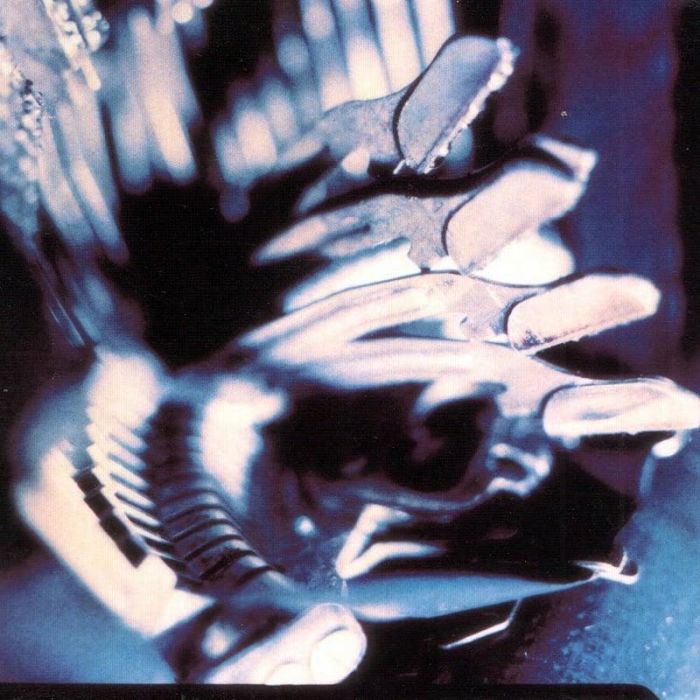Writers Without Homes by Piano Magic (Review)

Those who have been lamenting the passage of 4AD’s melancholy house band This Mortal Coil can all breathe a sigh of relief with the release of Writers Without Homes. Released domestically towards the end of 2002, the album finds Piano Magic picking up the former band’s mantle, both in execution and spirit.
Like This Mortal Coil, Piano Magic is a collective with a revolving door membership whose axis is one Glen Johnson. And like This Mortal Coil, Piano Magic is adept at creating lushly orchestrated pieces that swing between dreamy pop and bizarre mood pieces with ease, all the while dripping with loss, melancholy, and beauty.
The album opens with the slight sounds of “Music Won’t Save You From Anything But) Silence.” (Like their contemporaries in Hood, Piano Magic is, if nothing else, adept at crafting clever song titles.) Johnson whispers “Music won’t save you from anything but silence/Not from heartache, not from violence.” And then, as if to illustrate, the drums begin to build and the guitars begin to crescendo, seeking to give Mogwai a run for their money.
However, I find the lyrics more than just a bit ironic, because throughout their existence, themes of heartache and violence, of regret and alienation have dominated their oeuvre. There’s the Flying Dutchman scenario of their Bliss Out album, the lover of “Dark Secrets Look For Light” (who blinds himself after being unable to see his ugly wife’s inner beauty), and the themes of war that punctuate Artists’ Rifles. Indeed, Piano Magic’s entire catalog seems devoted to the idea that music can help one deal with and possibly even bring beauty out of such subject matter.
Writers Without Homes is no different, continuing to build on those themes with an elaborate palette of sounds. The cascading guitars of the opening track are followed by the Vespertine-esque bells and tones of “Postal,” bright little tones in contrast to lyrics about a postal worker who quits their route because the letters made him cry.
“Modern Jupiter” looks at yet another eccentric soul, one who “loved to work on his problems, drifting in his canoe” and “would welcome also God himself in his red bathing suit.” The music this time is dark, slow IDM, with thudding beats and shifting tones providing the backdrop for the watery vocals of Ronald Lippok (Tarwater).
Piano Magic also uses spoken word to a nice effect, as Caroline Potter does on “Certainty.” Waxing philosophical about death in various guises, be it dead lovers (“One minute there’s a whole life next to you and the next, there’s just a space and scattered clues”) or dead animals.
“Crown of the Lost” reworks some of the elements from “A Trick of the Sea,” taking the sparse melody and adding in a rolling piano melody and distant percussion. Together, they provide a fitting environment for Vashti Bunyan’s haunting vocals and lyrics (“And you know about birds when they’re dying/How they know that they’re going to die/How they hide in the heart of the forest/And sleep until death chances by”).
The album closes with the very somber “Shot Through The Fog.” Again, Johnson’s penchant for colorful, albeit tortured and disturbing lyrics can be seen, this time from the viewpoint of someone dealing with a loved one’s suicide (and very badly, I might add). We find Caroline Potter bemoaning “Your death claimed me too/There were two throats in the noose/But mine now swallows whiskey/Mine is not now bruised” before concluding the song with this chilling image: “The black mouth of this month/Bruised lips, black ice/Forms a sickly smile across London’s sky.” Lyrics like these almost make one wonder if there isn’t some skeleton or emotional scar at the root of Johnson’s songs.
As if seeking some comfort, there’s a final denouement of beautiful, crystalline guitar tones, but they only serve to haunt the listener more. The music doesn’t save you from the heartache, but it does transform it into something lovely and bearable. Case in point, “The Season Is Long.”
I just wouldn’t feel right if I didn’t talk about the album’s finest track. Fans of The Czars will be delighted, and not just because John Grant’s lovely voice graces the track. Johnson’s lyrics are a perfect match for Grant’s voice (“There’s snow on my heart and snow on my pills… Don’t you ever think that you might love me?”). Grant only sings for the first 3 minutes or so, but the remaining time is filled with gorgeous string and piano arrangements (courtesy of James Topham and Simon Raymonde, respectively). Again, themes of loneliness are there, but Grant’s pensive vocals are so full of hope and longing they could melt even the coldest Arctic heart in the middle of January.
A few weak spots do emerge on the album, such as the teasing (at 53 seconds) “It’s The Same Dream That Lasts All Night” or Bigas Luna’s annoying intro to “Already Ghosts” (consisting of drunken, cut-up utterances of the title). But those are few and far between, swallowed up by the rest of the album.
It’s hard for me to say which Piano Magic release is my favorite. Partly because I don’t have all of them (the group is fairly productive) but mostly because they’re all of such high quality. Writers Without Homes is just the latest in a long line of remarkable releases. If I say it’s my favorite, it’s only because it’s the newest and freshest to my memory. Everything I’ve heard displays a remarkable consistency and I deem everything I own of theirs to be essential.